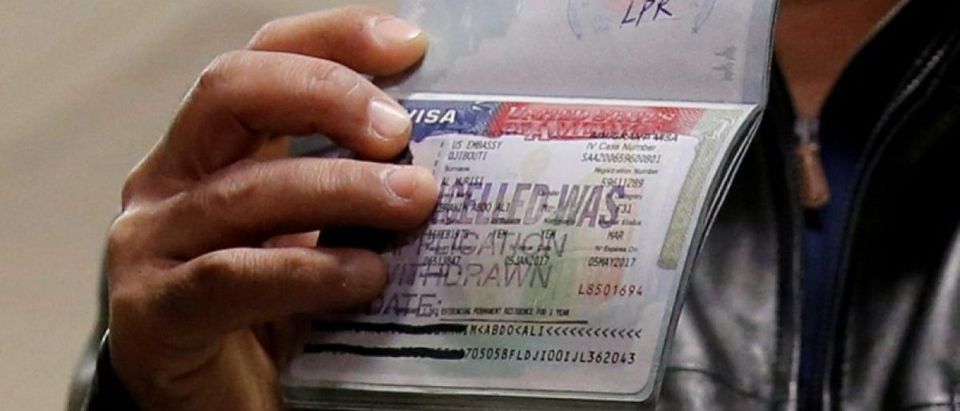A federal judge in Hawaii who previously barred implementation of the Trump administration’s travel ban ruled late Thursday that questions concerning its enforcement should be resolved by the Supreme Court.
District Judge Derrick Watson denied a request brought by a coalition of 16 states plus the District of Columbia to clarify the scope of exemptions to the travel ban provided by the Supreme Court’s June 26 ruling allowing partial enforcement of the ban. The high court permitted the ban to take effect, but will allow foreign nationals with a significant connection to the country to enter the United States.
The states, led by Hawaii, sought clarification as to what constitutes a significant connection. The Trump administration issued guidance for consular officers that concluded it refers to foreign nationals with close, previously established ties familial or business ties to the U.S. The guidance provided that certain intimate relatives, like the parents or children of individuals already in the U.S., are exempt from the ban, but that distant relations, including grandparents, aunt, and uncles are not.
“[T]he parties’ disagreements derive…from the modifications to this court’s injunction ordered by the Supreme Court,” Watson wrote. “Accordingly, the clarification to the modifications that the parties seek should be more appropriately sought in the Supreme Court.”
The development is not a surprising one. Administration lawyers previously indicated they would return to the Supreme Court if Watson or other district judges reduced the scope of their enforcement plan.
As BuzzFeed News’ Chris Geidner notes, the “highly deferential” order follows two rulings that reduced the scope of Watson’s initial injunction. The 9th U.S. Circuit Court of Appeals lifted his injunction with respect to provisions of the order requiring internal reviews of federal vetting procedures for refugees and migrants. The Supreme Court went even further, and allowed partial enforcement of the order.
Hawaii Attorney General Doug Chin said the states would continue to challenge the administration’s interpretation of the Supreme Court’s ruling.
“The scope of the travel and refugee bans badly needs to be resolved and not just according to the Trump Administration’s interpretation,” Chin said in a statement. “While we understand Judge Watson’s direction to address our request to the United States Supreme Court, we must evaluate that against the normal course of order as it relates to appeals and the clarification of injunctions.”
Neal Katyal, a former acting solicitor general and seasoned appellate advocate retained by Hawaii for the litigation, said that his clients suffered grave harm every day the ban is left in place.
For it’s part, the Department of Justice characterized the ruling as a victory for the administration.
“We are confident that the U.S. Supreme Court will again vindicate the president and his constitutional duty to protect the national security of the United States,” the Department said in a statement issued shortly after Watson’s ruling.
Hawaii will appeal to the 9th Circuit, instead of returning to the Supreme Court.
Send tips to kevin@dailycallernewsfoundation.org.
All content created by the Daily Caller News Foundation, an independent and nonpartisan newswire service, is available without charge to any legitimate news publisher that can provide a large audience. All republished articles must include our logo, our reporter’s byline and their DCNF affiliation. For any questions about our guidelines or partnering with us, please contact licensing@dailycallernewsfoundation.org.


